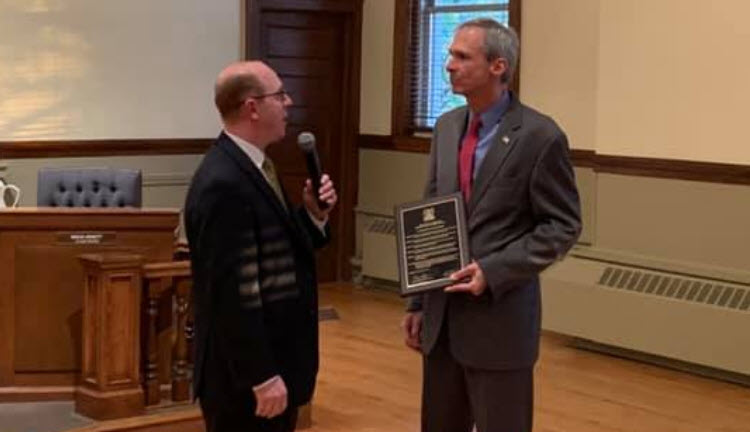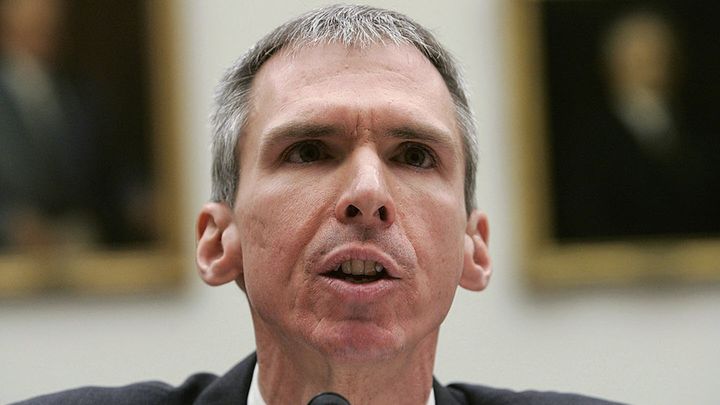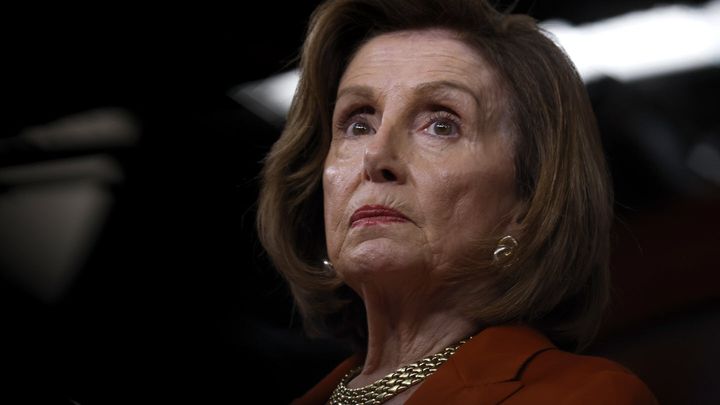Anti-choice Democrat Rep. Dan Lipinski (Ill.), one of the most conservative Democrats in Congress, has had a hard time winning support from members of his party for his primary against progressive activist Marie Newman. Chicago Mayor Lori Lightfoot endorsed Newman over Lipinski, as has the powerful SEIU Illinois State Council, The Chicago Sun Times, dozens of grassroots groups, and at least 10 of Lipinski’s Democratic congressional colleagues.
So when Lipinski received the endorsement of the Democratic president of the Village of La Grange, a suburb of Chicago, he made sure to shout it out.
“I am proud to receive the endorsement of Tom Livingston, Village President of La Grange,” Lipinski wrote on Twitter on Jan. 8.
What Lipinski didn’t say is that Livingston is also a lobbyist for CSX, a railroad transportation company that spends millions each year to lobby Congress on issues before the Railroads, Pipelines, and Hazardous Material Subcommittee of the Transportation and Infrastructure Committee, which Lipinski chairs. Livingston, the head of state government affairs and community relations for CSX, has been registered to lobby for the company in Illinois since 2004 and in Michigan since 2012, according to records maintained by the secretaries of state.
Just days after Lipinski celebrated his endorsement, Livingston announced that he was resigning from his position in the La Grange government to focus on his lobbying work. He had been promoted to oversee lobbying for CSX’s entire service area, Livingston said at a town meeting, an expansion of his previous duties which only dealt which only covered lobbying in the Midwest.
“I do not believe it is appropriate,” Newman told Sludge about the Lithevingston endorsement. “Lipinski’s pay-to-play politics was one of the driving forces behind my decision to challenge him for this seat. People in our district are struggling to afford their lives. We need a representative who will advocate for us in Congress, first and foremost, not for corporate special interests.”
CSX’s PAC has given $61,000 to Lipinski since 2004, making them one of his top career donors, according to the Center for Responsive Politics. Livingston does not appear to have donated directly to Lipinski, but he is a consistent donor to CSX’s PAC, providing $4,292 in 2019, $4,064 in 2018, $3,951 in 2017, and similar amount in previous years, according to Sludge’s review of Federal Election Commission data.
Over the course of his career, Lipinski has received $393,174 in campaign contributions from the railroad industry, including $353,000 from the industry’s political action committees. The railroad industry typically donates close to $10 million to federal candidates and party committees per two-year election cycle, with around two-thirds going to Republicans, according to the Center for Responsive Politics.
An ally in Congress for the railroad industry
Lipinski, whose father, former Rep. Bill Lipisnki (D-Ill.), was a railroad industry lobbyist from 2006-15, became the chair of the Railroads Subcommittee in January 2019 and has been a member of the subcommittee since 2007. During that time, he has led multiple legislative efforts benefiting CSX and the railroad industry more broadly.
Since 2012, Lipinski has co-sponsored legislation to extend and expand the Section 45G shortline rail tax credit that provides a 50% credit for railroad track maintenance expenses worth up to $3,500 per mile of track owned or leased by a railroad company. The credit costs the government up to $202 million per year in foregone taxes collected from railroad companies, according to the Congressional Research Service. In the current session of Congress, Lipinski is an original co-sponsor of a bill to make the tax credit permanent. CSX has reported lobbying on the shortline rail tax credit since 2008, and it lobbied the bill to make it permanent in all quarters of 2019, according to Sludge’s review of disclosures.

In 2015, Dan Lipinski played a key role in delaying a requirement for railroad companies like CSX to install Positive Train Control safety systems installed in order to prevent accidents caused by human error. The system, which combines track sensors with automated brakes that can slow down trains to prevent crashes or derailments, could have prevented fatal crashes that have occured in recent years. A 2017 National Transportation Safety Board investigation found that Positive Train Control could have prevented the deaths of nearly 298 people and nearly $385 million in economic damage in a 45-year span. A 2017 derailment in Washington state that killed three people likely could have been prevented if Positive Train Control had been activated, as the train was found to traveling at 80 mph in a 30 mph zone at the time of the incident.
According to journalist Lee Fang of The Intercept, Lipinski sympathized with railroad executives, including one from CSX, at a 2015 hearing over looming penalties for not having Positive Train Control systems in place by government-mandated deadline. “We all want to sit up here and fine villains,” Lipinski said, “but in this situation, it’s very complex and there are not easy answers to this.” Lipinski said. Several weeks later, Lipinski and other representatives signed a letter urging Congress to extend the deadline and delay the fines and in the coming weeks Lipinski used his position on the conference committee negotiating the final details of the Surface Transportation Reauthorization and Reform Act to get the delay signed into law.
“When you look at all of the transportation issues in our district and the crumbling infrastructure in certain places, it’s clear that Rep. Lipinski could be doing more to serve the public interest as a senior member of the Transportation committee,” Newman told Sludge. “And when you look at things like Positive Train Control and Rep. Lipinski’s work advocating to delay those improvements, which would save lives and dollars, while taking big cash from rail interests at the same time, you really begin to question who he is working for.”
Dan Lipinski’s campaign did not respond to Sludge’s inquiry as to whether they would take the Livingston endorsement off their website later this month when Livingston formally resigns his local government position.
Related:



